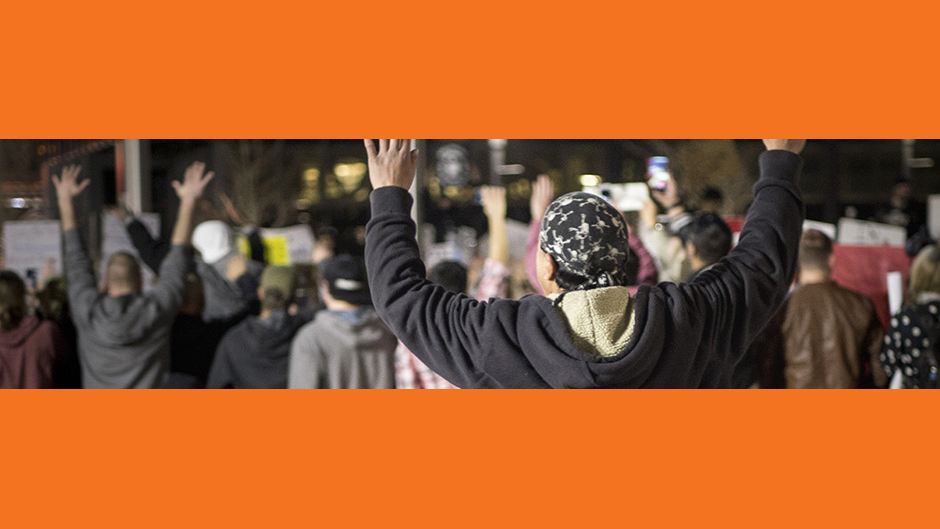In Spring 2017, the School of Law will be convening an interdisciplinary course called “Race, Class, and Power: University Course on Ferguson and the #BlackLivesMatter Movement.”
The course will engage the multiple lenses through which Ferguson, the Black Lives Matter movement, and racial justice in the U.S. might be explored. It includes examining issues such as policing and criminal justice, comparative inquiry regarding race and identity, theories of social movements, education reform, healthcare and medicine, environmental justice, literature and artistic expression, law and legal reform, and statistical data analysis.
Vice Dean and Professor Osamudia James conceived of the course and unpacks the tent pole issues behind the motivation. Experts from the UM community will be joined by nationally recognized authorities.
First, what is behind the overarching movement of singling out why black lives matter?
#BlackLivesMatter is interesting as both a specific movement in response to a specific set of events, and as a heuristic or signaling device that calls our attention to larger matters of racial inequality in the United States. Studying the movement, and the societal factors that gave rise to it, allows us to think not just about anti-black racial subordination in the United States, but also about the mechanisms of bringing about social justice more generally.
What made you pursue adding the course to the curriculum and how does it connect more broadly to law students’ education?
As lawyers, our professional oath requires us to be attuned to matters of injustice in our society. That attention, however, is compromised if we don’t understand the social context against which law operates. Using several different perspectives, including but not limited to law, economics, labor politics, medicine, sociology, anthropology, and religion, this course allows students to engage underlying phenomena that give rise to injustice, such that their practice of law—whether or not they do public interest work--might be both more informed and effective in bringing about justice.
What do you hope for the course to accomplish and who is your target student?
My hope for the course is that students and participating faculty all come away with a more nuanced and informed understanding of the movement, of the problems that gave rise to the movement and other movements like it, and a sense for how it should shape participation in our democracy.
Will the law school continue offering the course in the future?
It’s definitely our hope to run the course every year, especially because there were more faculty interested in the course than we could accommodate this first time!
CONTACT: Catharine Skipp at 305-284-9810 or cskipp@law.miami.edu

